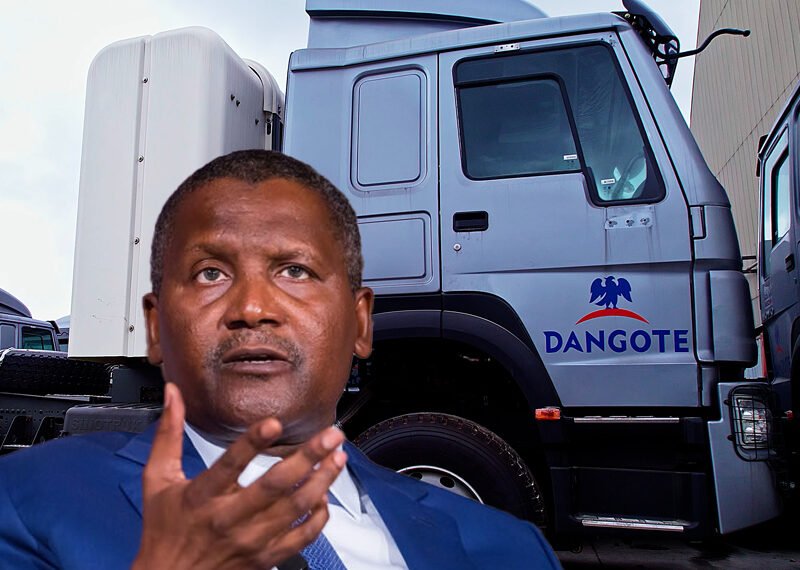The President of the Dangote Group Aliko Dangote, has reiterated his dedication to lowering Nigeria’s unemployment rate by generating thousands of jobs through the operations of the Dangote Refinery.
During a media briefing at the refinery complex on Monday, Dangote emphasized the company’s initiatives to offer sustainable employment and appealing benefits, particularly for its Compressed Natural Gas (CNG) truck drivers.
He stressed that the refinery’s operations, including the introduction of CNG-powered trucks, are focused on creating new job opportunities rather than eliminating existing ones.
“We are not removing anyone from the job market. Our tankers will not be operated by robots. We are hiring drivers, mechanics, fleet managers, and other professionals to support our CNG fleet,” he stated.
He pointed out that the company’s drivers earn salaries that are three times higher than the national minimum wage, in addition to life insurance, comprehensive health coverage for themselves, their spouses, and up to four children, as well as a lifelong pension.
Furthermore, drivers who maintain a five-year accident-free record can qualify for housing loans.
In response to concerns regarding trade unions, Dangote clarified that joining a union is a personal decision for drivers, emphasizing the company’s respect for workers’ rights. “We honor trade unions, but membership is voluntary for each driver,” he mentioned.
Read also:
- Dangote Refinery hits back at DAPPMAN, rejects N1.5trn subsidy demand
- How Democracy Undermines Development In Nigeria
- Historic Windfall: FAAC splashes record-breaking N2.2 Trillion revenue across Nigeria
The refinery, a significant project aimed at revolutionizing Nigeria’s downstream oil sector, has encountered considerable challenges since its launch.
Dangote noted that industry experts, investors, and government officials had cautioned that such a large-scale refinery project is usually undertaken by sovereign nations due to its substantial risks.
“If it had failed, lenders would have seized our assets. But we had faith in Nigeria and Africa,” he reflected on the high-stakes choice to construct the facility.
Despite these obstacles, the refinery has recorded significant achievements.
Since it began operations, it has lowered petrol prices from nearly N1,100 to N841 in areas such as the Southwest, Abuja, Delta, Rivers, Edo, and Kwara.
The ongoing deployment of CNG trucks is anticipated to extend these cost advantages across the country.
Between June and early September 2025, the refinery exported over 1.1 billion liters of Premium Motor Spirit (PMS), showcasing its ability to satisfy domestic demand while generating foreign exchange through exports.
Dangote highlighted the critical role of industrialization in Nigeria’s economic development, cautioning against dependence on imported goods.
“Relying on imports equates to exporting jobs and importing poverty,” he remarked, using the decline of Nigeria’s textile industry as a warning.
He urged the National Assembly to pass legislation that supports a “Nigeria First” policy to safeguard local industries and discourage the influx of cheap foreign products.






